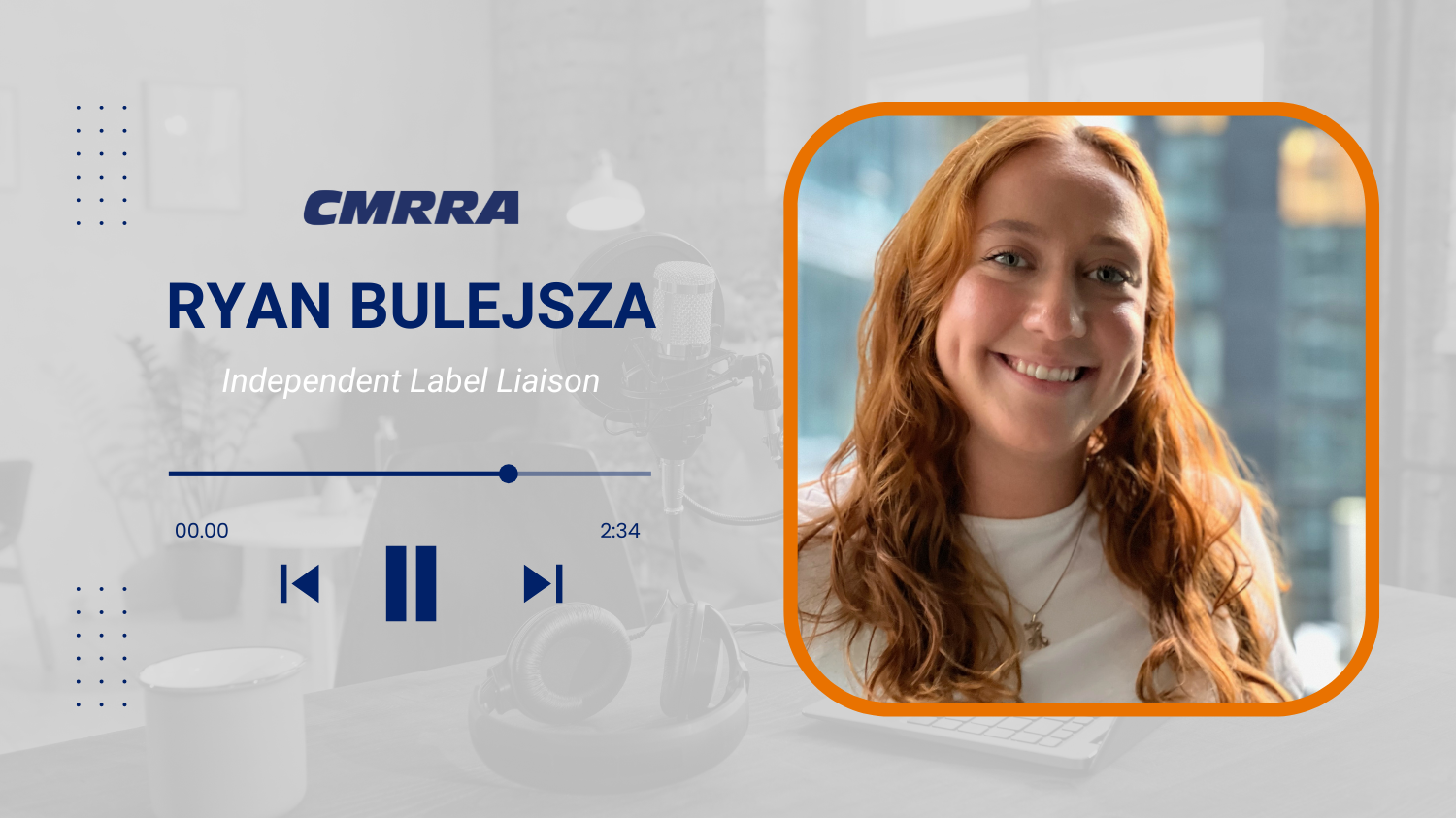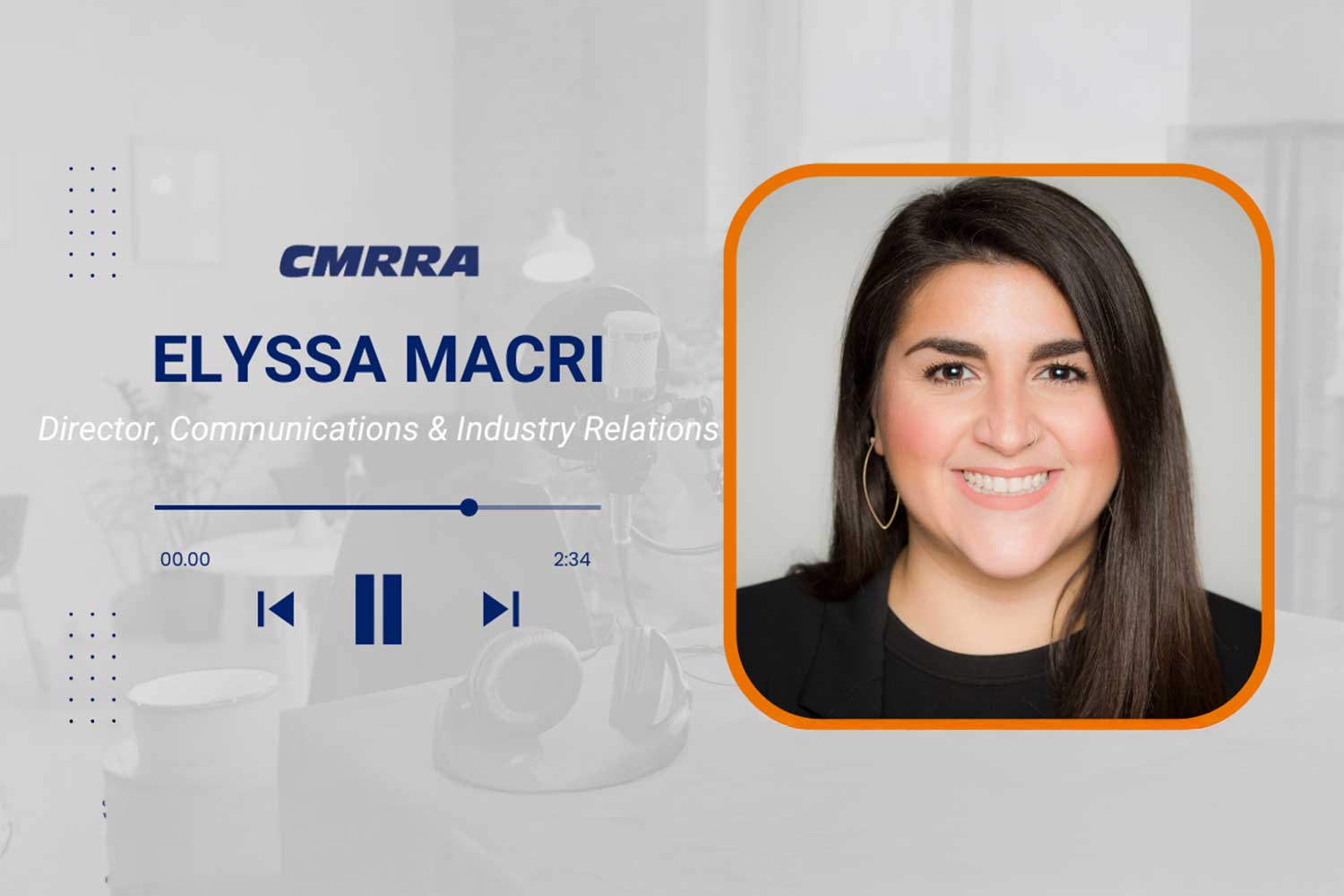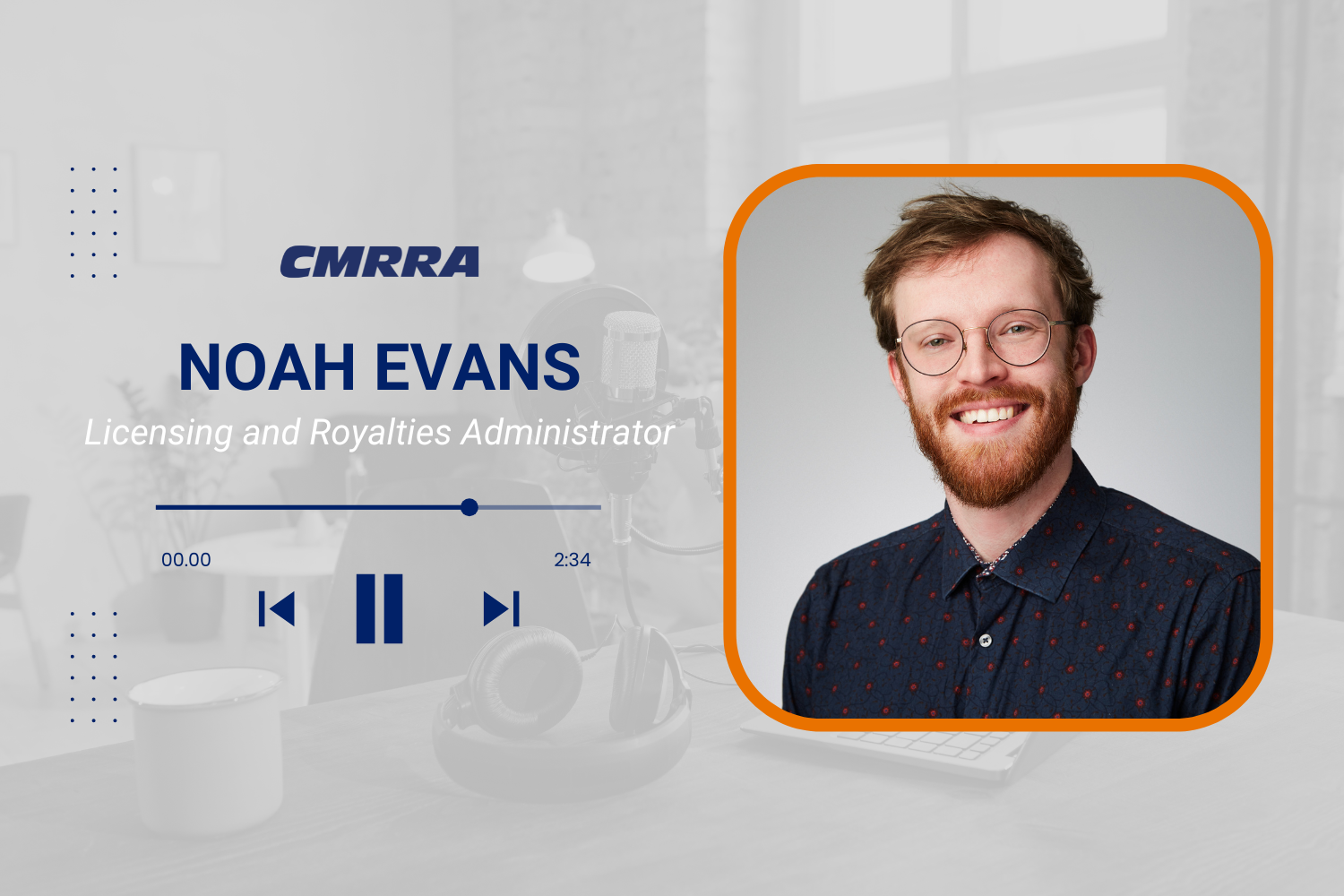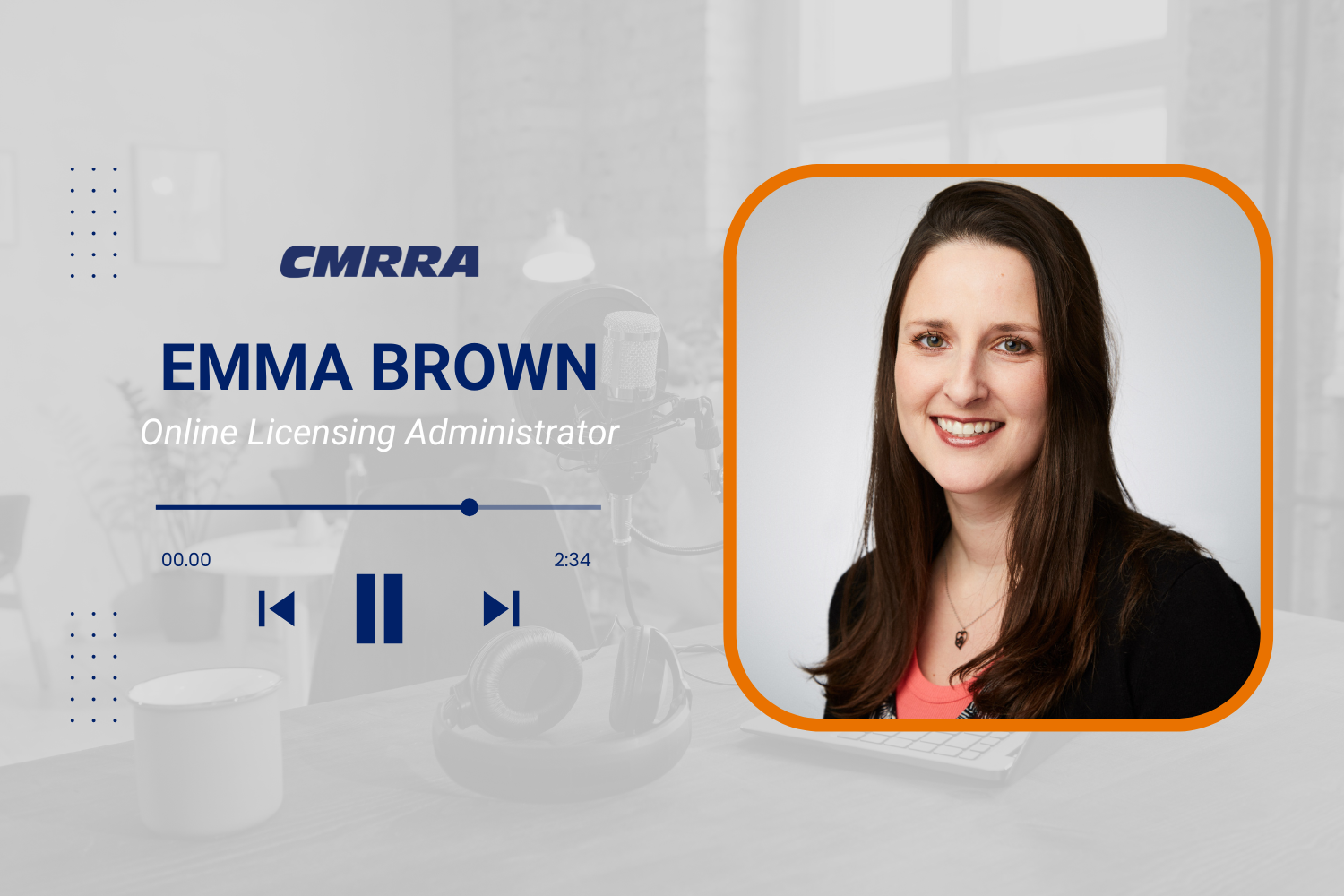This month’s Front of House features CMRRA’s Ryan Bulejsza. Learn more about her role as Independent Label Liaison, being a member of CMRRA’s DEI committee, and her experiences working in the music industry.
You’ve recently moved into the Independent Label Liaison role at CMRRA. Can you tell us about what this means? What is the most fulfilling part about what you do?
The Independent Label Liaison position has been an exciting role to step into. I handle the accounts of independent record labels, who are signatories to CMRRA’s Mechanical Licensing Agreement. I work closely with the labels and help them with any of their licensing concerns, which largely includes processing new licence requests, ensuring their licences are accepted in a timely manner, reading through agreements, and troubleshooting any issues that may arise. There are various goals each day, but I work with a very talented and competent mechanical licensing team to ensure that we can provide our clients with best-in-class service and collections. Getting to see a larger project from start to finish is always really gratifying. Every quarter, there are wins to celebrate, along with learning and growth moments, which makes the position both challenging and rewarding. That’s something I really appreciate in my career.
What are your thoughts on the rise of NFTs?
In general, I think the rise of NFTs is an excellent opportunity for creators at any level of stardom to add an extra stream of income. Additionally, it gives music creators a way to interact more directly with their fans. Die-hard fans often want an opportunity to support them outside of merchandise and concert tickets. In March of 2022 I attended a CMW panel where an entertainment lawyer astutely said on the topic of NFTs that “music sells everything but itself”. I think it’s only smart in the age of streaming that artists look for other sources of income.
Congratulations on recently joining CMRRA’s Diversity, Equity, and Inclusion (DEI) Committee! What DEI changes have you seen at CMRRA?
While CMRRA’s DEI committee was created in September 2020, I am a fairly new member, having just joined in June of this year. However, throughout my time at CMRRA, I’ve seen some significant changes. Some of the changes include the rollout of an official Land Acknowledgement to be used at all internal and external meetings, the commitment to Breaking Down Racial Barriers with CIMA, and the recognition of the National Day for Truth and Reconciliation. These all represent substantial steps forward for our organization. The road to change is a long one; like any industry, music has its fair share of inequality and prejudice. It feels good to be a part of meaningful action geared towards listening and learning from a standpoint of humility and humanity.
Tell me about your experiences working in the music industry (outside of CMRRA).
My first experience in music began in Montreal with a boutique record label – Couteau Music House – that housed uber creative artists. Their focus was curating a roster of true artists, songwriters and performers that broke through the mold. I learned a lot about creative direction, how to support and develop emerging artists in today’s market, and most importantly about the amount of work that is required behind the scenes. I also worked at a publishing company simultaneously – Genison Musique – that taught me a lot about the nitty gritty of copyright and royalties. I’ve done freelance contracts for emerging artists that included asset development and writing, PR campaigns, consulting, and radio promotion. I’ve also stage managed at Canadian Music Week and promoted a showcase for Couteau in Montreal that oversold at 900 attendees.
My past experiences have given me a well-rounded understanding of the industry and has helped a lot in my work with CMRRA. Having been on the other side, being a small label and submitting licence requests and registering songs with performance, neighbouring and reproduction rights organizations, has made me appreciate that every penny counts for our clients. The work we do at CMRRA is important and can make a huge difference in an artist being able to pursue a career in music or having to choose another path.
As a music industry professional, what is the most rewarding part of what you do? If you could give advice to anyone looking to break into the industry, what would you suggest?
Music has always been among the most important things in my life. It’s a necessity; it colours our world and it’s a way for me to share my favourite moments with the people I love. It means so much to be part of an industry that allows art to flourish. It’s humbling, magical, and extremely fulfilling. Every day is different and every day is an opportunity for me to learn more about what I love. Compensating rightsholders and songwriters for their work is by far, the most rewarding part of what I do. Without proper compensation for creators, it’s plausible that music creation would dwindle, and where would we be then? My education is mostly in economics and commerce, and the intersection of that and music is one of the most interesting things to me. I have and will continue to tailor my career towards that intersection so that Canadian music continues to thrive.
The biggest piece of advice I can offer someone wanting to break into the music industry is to go to every panel, every industry event, every conference that you can. Introduce yourself, ask questions, and follow up (in a pre-COVID world this was a lot easier, but it’s still possible!). I met with as many people that would take meetings with me and learned a lot during that time. One thing leads to another, one connection leads to another, and while it’s unclear while you’re forging the path, it seems pretty clear when you look back.
Thinking about becoming a client of CMRRA? Already a client but you have questions? Email us at [email protected] and we’ll get you the answers you need.




